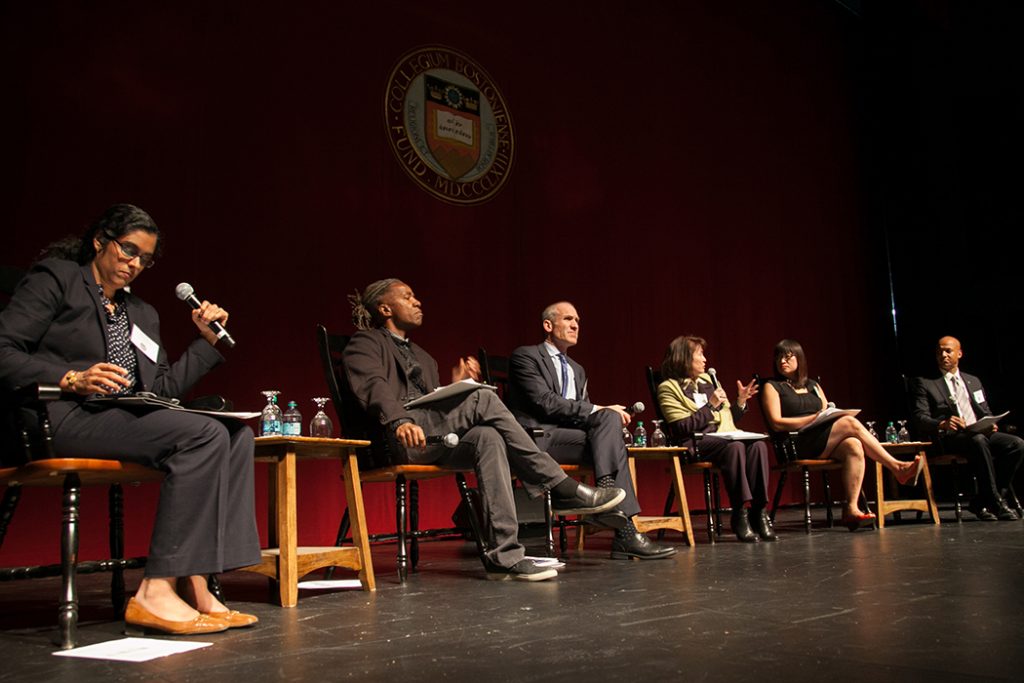A panel discussion cosponsored by the Law School’s Rappaport Center for Public Policy brought Imagine Boston 2030, the city’s first comprehensive planning process in 50 years, to Robsham Theater on March 30. While the panel had a moderator–Megna Chakrabarti, a radio host at WBUR-FM–most questions for the panelists came from audience members, many via Twitter. Almost all dealt with challenges facing the city despite its recent prosperity: an aging population, struggling schools, decrepit transportation infrastructure, racially segregated neighborhoods, unaffordable housing, and the nation’s worst income inequality, among others.
Panelist John Barros, the city’s economic development chief, pointed out that investing in mixed-income housing will not only help solve the housing crisis; it will also lessen segregation, while at the same time reducing the need for school busing, a program that currently costs the city $100 million annually.
In an era of low, regressive taxes, cost-conscious thinking such as this dominated the evening. “Why build a levee or a dike when you can build a waterfront park for flood protection?” asked Harriet Tregoning, who heads community planning and development at the US Department of Housing and Urban Development. Tregoning also recommended that the city rezone to allow empty nesters to add second units to their houses. Not only would this reduce older residents’ isolation and provide an extra income stream, it would also increase rental housing stock—all at no cost to government.
Another panelist, Walter Hood, who teaches landscape architecture at UC Berkeley, wondered aloud whether businesses could set up internships for older public school students, adding a real-world component to their education while reducing the cost of teaching them.
Also in the area of education, Shirley Leung, business columnist for the Boston Globe, suggested that businesses underwrite pre-K schooling, which has lifelong educational and economic benefits. “It seems as if the business community has rallied around taxes, against indexing the gas tax,” she observed, no trace of irony in her voice or expression. “Maybe this could be their next big issue.”


